 A cautionary tale for anyone who uses Amazon to publish their titles in paperback, whether independently or through a publisher. If you have only ever used KDP then there shouldn’t be any problem, but for anyone who uses, or has used, a third-party printing service, this could be a bear trap waiting for you. If you are a small publisher, then this is definitely something of which you should be aware. Now, as we know, Amazon are a huge global internet supplier, not just of books but for pretty much anything. If they were a High Street (or Main Street if you prefer) outlet they would be present not just in very High Street in Europe and North American, they would be present in villages in the middle of Borneo that no outsider has ever seen. That’s how big they are. So, you would think that they would have simple processes in place for the resolution of issues. You would be wrong to think that. Several of the authors we represent used to publish through another small publisher. I’ll call them Fabulous Publishing for the sake of anonymity. A couple of years ago the owner of Fabulous Publishing decided he didn’t want to be a publisher anymore and closed his company down. As part of the close-down, Fabulous Publishing unpublished all the titles they had listed on Amazon (and on other etail sites). Fabulous Publishing also returned the publishing rights for the titles to the authors, so they could go elsewhere to be published, if they wished. Some of those authors went to a publisher we’ll call Selfishgenie Publishing, because we don’t require anonymity. Yes, we signed them and published their books, both as ebooks and as paperbacks. But Fabulous Publishing used a third-party printer to print their paperbacks. We’ll call them Wonderful Printing. They are a big company; they know what they are doing. When Fabulous Publishing closed down, Wonderful Printing contacted Amazon and told them that the relevant titles were no longer available as paperbacks through them and asked Amazon to “de-list” them. You would think that would be the end of the matter – but if it was, you wouldn’t be reading this blog because I would have no story to tell. "And that is where we hit our first speed bump." You will be familiar with Amazon Marketplace. This is where small traders sell goods using Amazon’s platform as their sales channel, for which Amazon receives a slice of the action. There’s nothing wrong with that, it makes good sense to “sweat the assets” as it’s known in business. But one of the things those small traders sometimes sell is second-hand books. And that is where we hit our first speed bump. Because a trader was selling one copy of a title by one of our authors, we couldn’t sell any of the paperback of the same title that we had published. Until that second-hand copy was sold, the listing showed the paperback as being the one published by Fabulous Publishing. But you couldn’t actually buy a brand new copy of Fabulous Publishing's product because it was no longer being printed by Wonderful Printing. We submitted a complaint and were told by Amazon that the trader selling his second-hand copy was entitled to do so and until that copy had been sold, all the publishing details for the paperback version of the title had to remain as "Fabulous Publishing" and our brand-new paperbacks couldn’t be displayed. That was it – we couldn’t sell any of this title as a paperback until Joe Shmo from Nowheresville had sold his second-hand copy. The only way out of this was for our author to buy the second-hand copy so that the listing could be changed. So, problem solved. "So, we went back to Amazon and asked them to fix it." No it wasn’t. The listing for the paperback was still showing as the one for Fabulous Publishing which, as already established, isn’t available. While our edition was available but couldn’t be purchased because of this ridiculous "through the looking glass" situation. So, we went back to Amazon and asked them to fix it. Their reply was that they couldn’t take instructions to fix it from us. It had to come from Fabulous Publishing who, of course, no longer exist. Fortunately, the former owner of Fabulous Publishing is a personal friend and was happy to help. He contacted Amazon with details of not just that title, but all the other titles that he had published as paperbacks and asked for them to be de-listed. (But imagine if there was no way of contacting Fabulous Publishing anymore? We definitely dodged a bullet there). The reply he got surprised him. Because the sales channel for the paperbacks had been set up by Wonderful Printing, on behalf of Fabulous Publishing, they couldn’t take instructions from Fabulous Publishing either. Only Wonderful Printing could make the request. "This time we really were in a dead end." So, (the former) Fabulous Publishing contacted Wonderful Printing, who contacted Amazon. Amazon told them how to delist the titles. But when Wonderful Printing tried to follow the instructions, Wonderful Printing were told they weren’t authorised to do so. This time we really were in a dead end. So, we here at Selfishgenie Publishing still can’t publish those paperback titles formerly published by Fabulous Printing. "So Amazon are lying to their customers." And Amazon’s response? Basically they are saying that Wonderful Printing are the problem, even though I have seen the emails that show clearly that Wonderful Printing have done everything asked of them. If you go onto Amazon to try to buy a copy of the paperback book, it shows that there is one in stock. This is normal for “Print on Demand” (POD) books. But if you click to buy it and put it in your basket, you are then told it is “temporarily out of stock”. No it isn’t temporarily out of stock. The product sold by that publisher is permanently out of stock. So Amazon are lying to their customers. Meanwhile, Selfishgenie publishing, who would gladly sell you a copy of the book, is unable to do so. This is the Alice in Wonderland world of Amazon for you. "But we need your help." The biggest irony of all, and the one that Amazon fails to see, is that while we are down this rabbit hole where neither we nor our authors can make any money by selling the paperbacks - neither can Amazon! Yes, we are using Jeff Bezos's resources and he is getting nothing out of it. Is it case closed? Not quite, we hope. But we need your help. If you think that Amazon are behaving like a bunch of clowns, then please help by sending this blog viral, so that the whole world can understand what an intransigent bunch of idiots actually manage Amazon. My thanks to the real people behind both Fabulous Publishing and Wonderful Printing for their help in trying to resolve this issue. You know who you are and I owe you a drink. And if anyone with half a brain at Amazon is reading this and can get us out of this mess, you’ll find our email address on our “Contacts” page. I’ll be happy to provide you with copies of all the correspondence. But do not despair. You can still get most of our other books in paperback versions if you want them. To find out how, click on the "Books" tab at the top of the page. PS. To be absolutely fair to Amazon, about 10 days after publishing this blog, the issues described above were resolved and the paperbacks we publish are now being correctly displayed on the relevant sales pages.
It would have been much better all round if they had been resolved before our patience snapped and we resorted to blogging about the problem, but we got there in the end.
0 Comments
This is a story about some books that should be selling like hot cakes, but probably aren’t. Stick with it, because there may be lessons for the Indie author to learn here. I am reading the second book in a lengthy series, written by an Indie author. Like the first book in the series (and all the others) it is set during World War I and it has a lot of merit. The plot is generally good and the main character is engaging, with a good supporting cast of minor characters. As far as I can see, the author has done his research and that gives the book an authentic feel.  Under normal circumstances I would have reviewed the first book in the series and posted the review on this blog. It is part of what we do to help Indie authors. There is enough good writing in the plot and characterisation to allow me to give it a 4 star rating and, perhaps, even a 5 star if I’m in a generous mood. It’s all “boys own adventure” type stuff, but none the worse for that. Question: why am I talking about this book as though I’m not going to review it? Answer: because I’m not going to review it.  If I did review it and my review was an honest one, as it should be, I could give it no more than 3 stars and if anyone is going to sabotage this author’s work, it isn’t going to be me. For the same reason I’m not going to give you the title of the book or the series and I’m not going to name the author. Besides, why should I do what the author has done so admirably, by sabotaging his own work? The first book in the series had me screaming in frustration and the second book has me in shaking my head in disbelief. When it comes to editing and proof reading, it is awful. As we know, even books published by the big-name publishing houses have the odd typo or punctuation error in them, overlooked at the proof-reading stage by a professional proof-reader. If that were all I was talking about, there would be no problem and you wouldn’t be reading this blog.  But I’m not talking about an error every third or fourth page, or every second page or even every page. I am talking about an error in every paragraph and sometimes more than one. There are punctuation errors, typos and the use of the wrong homonyms. In some cases, the errors are so bad they change the meaning of a sentence. To give one example, in an historical note the author uses the word ‘temerity’ when it is quite clear he means ‘tenacity’. Sentences have to be read twice or three times to decipher them because a lack of punctuation means they can be interpreted in more than one way and it is hard to work out which way the author actually meant us to interpret them.. So much for proof-reading. But it doesn’t stop there, because the editing or, more likely, the lack of editing makes the books difficult to read and impacts on the entertainment value.  In Book 1, so little happens in the early chapters that I was thinking of giving up reading the book out of boredom. It made me wonder how many readers had used the ‘look inside’ feature on Amazon and done just that, passing the book by to go and look for something that grabbed their interest a bit quicker. And it is a shame if they did that because, as I said above, the stories are quite good if you can just get passed these issues. Later, some of the descriptive passages become repetitive or rambling. In some places the paragraphs make it hard to follow the plot and in other instances the paragraphs don’t make sense. "And now we get to the moral of this story " To give another example to illustrate my point about the editing, at one point the author describes the light fading – when it was dawn and the light would be increasing. He probably meant that the darkness was lessening, or that the light was improving, but that’s not what he wrote. It’s the sort of thing an editor would point out and which is easy to correct. And now we get to the moral of this story and the reason I hope you Indie authors have read this far. Because these books deserve to be best-sellers but will never become so. The poor editing and proofreading make them appear amateurish.  Now we come to a question that you might like to answer. How would your books stand up by comparison? Are you sabotaging yourself because you aren’t a good editor or proof-reader? It is entirely possible that you are if you aren’t getting other people to cast their eyes over your work. Both editing and proof reading take time, we know. And anything that takes time usually costs money if we want someone else to do it for us. So, how do we avoid the sort of mistakes that I have described above, but without it costing us anything?  You are not alone You are not alone This is where the ‘writing community’ can help. We can buddy up and look at each other’s work and tell the author which bits work for us and which bits don’t. At the very least we can spot the typos, punctuation errors and incorrect homonyms that I referred to earlier. And, best of all, we get to read a free book as well. If we are doing things properly, then we will be editing and proofreading our own work anyway, so all we would be doing would be expending the same amount of time doing it for someone else, while they do ours. It costs us no more time than it was going to cost us anyway. Here at Selfishgenie Publishing we have a golden rule that no book is published until it has been read at least 4 times by a minimum of two different people (that’s twice each, not 4 times each). If anything slips through the net after that, then at least we have done our best to prevent it. And if you weren’t going to edit and proofread your own work – well, you may want to read this blog again and see if there is anything you may wish to reconsider. If, by any chance, the author of the books I have referred to is reading this and recognises my references, please feel free to contact me (use the general enquiries email address given on our ‘contact’ page) and I’ll be happy to offer some feedback on the work. There is still the opportunity to withdraw these books from sale, sort them out and turn them into the best-sellers they could be. If you have enjoyed this blog and want to be sure not to miss future posts, why not sign up to our newsletter? And if you do, we'll send you a free eBook. Just click the button below to find out more. Just a reminder, we are open for submissions of new work. Just check out our contacts page for more information.
 All Indie authors need an advertising budget. There, I’ve said it. You may not want to read that and you may now be sticking your fingers in your ears and going “la la la”, but I’m afraid it’s true. Let’s start from basics. Nobody is going to stumble on your book by accident. It may be the best book ever written, but if nobody knows it exists then they can’t read it.  Nobody is going to stumble on your book by accident! Nobody is going to stumble on your book by accident! You will be aware that social media can be used to bring your book to the attention of a wider audience for free, but it has a limited utility. Once your post or Tweet about your book has been read by your “friends” or “followers” they will do one of two things. They will either buy the book (hooray) or they will ignore it (boo). After that, no matter how often you post or Tweet about your book, nothing will happen. The people who bought your book when they first saw the post aren’t going to buy it again and the people who ignored it first time around are going to continue to ignore it. This means you have to keep finding new “friends” and/or “followers” who haven’t previously seen your message and who will either buy your book or ignore it. And finding those people is a relentless slog which takes up more and more of your time. And your time is valuable. You should be spending your time writing new books, not trawling through social media trying to attract new people.  Which is where advertising comes in. There is a thing in commerce called “spend to save”. The basic principle is that if you spend money now on certain things, you will save money in the longer term. For example, if you spend £1,000 on replacing your existing light bulbs with more energy efficient light bulbs, you will save more than £1,000 over the next five years, thus repaying the initial outlay and making a profit. This is also known as “return on investment” (ROI). The same principle applies in advertising, though here you might call it “spend to earn”. If you spend £x on advertising now, you will earn £y back in sales, so the advertising cost is paid back and you get your ROI. This is something that is well understood across business. If advertising didn’t pay for itself, then all those adverts that we see on-line, on TV, in the cinema and that we hear on the radio, just wouldn’t be there. Advertising has to pay for itself or or nobody would do it.  But you are an Indie author. You don’t have much money. How can you possibly afford to advertise? Fortunately, the same social media we used to promote our book for free, also offers the facility to advertise that isn’t expensive. You may have 5,000 followers on Twitter, but a paid advertisement has the potential to reach millions of people. The same applies to Facebook and to all the other forms of social media. It even works by paying for advertising on Amazon. There are some good practices that should be born in mind if you are going to advertise and I’ll touch on these now. We have covered most of them in previous blogs, so we won’t go into detail here.  Target your audience. Make sure the advert is aimed at the right people. There’s no point in paying for your book to be promoted to people who don’t read books or who don’t read books in your genre. Time your advertising. Not everyone is on social media 24/7, so find out when your audience is likely to be on-line and time your advertising accordingly. Change your message. People get annoyed by repetition, so each advert should be different from the one before. This will require you to be creative – but you’re an author, you are already creative. Make your adverts eye-catching. People are more attracted to pictures than to words and they are more attracted to moving pictures than to still ones.  Think long-term. Every new reader that you attract with an advert is likely to stay loyal if they enjoy your book. So that’s a sale in the bag for your next book and all the others you are going to write – and you won’t have to pay for those sales. Save to spend. Set aside money from each sale to help pay for your next advert. I would recommend 10% minimum from the income from each sale.  You shouldn’t waste money on those businesses (mainly on Twitter) who offer to promote your book to their gazillion followers. Their output isn’t targeted and there is very little evidence that it produces results. You might as well stand in the street with a megaphone shouting “buy my book”. In fact, you’d probably get more sales that way (along with a restraining order). How much should you spend? Well, a Facebook advert running for 4 days will cost about £25 ($30) and that should return you enough sales to justify the cost. Other social media channels and Amazon offer similar levels of pricing. How often should you advertise? As often as you can afford it. I would suggest at least one advert per month and if you can’t afford that, try for one very two months. Have I convinced you? If not, then there is only one thing that will. Give it a try, just once, and see what happens. Experience costs money, but for some people it is the only way they will be convinced. But, let’s face it, if your book isn’t selling, then doing nothing isn’t really an option if you want that to change. If you have enjoyed this blog or found it interesting, make sure you don't miss the next edition by signing up for our newsletter. If you do, you can get a full length novel for FREE. Just hit the button.  There is a subtle prejudice against Indie authors that isn’t present in other forms of creativity. I’m not talking about the big prejudices, like those involving race, religion, gender, sexuality etc. I wouldn’t want to lump this in with those as it doesn’t have the same sort of impact on those who suffer. No, I’m just using the word in its original meaning, which is to ‘pre-judge’. In other words, to make assumptions that aren’t based on any real evidence. That happens with the big prejudices in a big way and is more far reaching. Pre-judging an Indie author probably won’t affect their ability to earn a living, get housing or fair treatment by the police, so it isn’t in the same league. But it matters to the Indie authors, all the same. Indie authors are prejudged in a way that no other art form appears to be.  Imagine you are walking along the street and see a sign outside a pub. It says “Appearing here tonight, Fred Bloggs, musician. Entry £5.” Would you consider parting with a fiver to see him perform? There might be some questions you would want to ask, such as what sort of music Fred plays and what price the beer is at the bar, but I think a great many people would take a chance and part with their fiver. Or maybe if it said “Comedian Fred Bloggs.” Again, you might have a few questions, but you might well decide to go along. You would give Fred Bloggs a chance.  What you probably wouldn’t say is “Fred Bloggs has never had a hit record, so I’m not going.” Or “Fred Bloggs has never appeared on Live At The Apollo (a TV comedy showcase in the UK) so he can’t be very funny.” In other words, you wouldn’t pre-judge Fred Bloggs. If his music or comedy style was to your taste, you might well take a chance and buy a ticket, even though you had never heard of him. But when presented with a book by an Indie author, how many people say “He (or she) hasn’t had a best seller, so they can’t be very good, so I’m not going to part with my money.” Because that seems to be what happens to Indie authors with monotonous regularity. People will pay £5 to hear an unknown singer in a pub, but they won’t pay the same amount to read an unknown author.  Being judged by different standards Being judged by different standards For some reason, authors are judged by different standards to other creative artists. So, what is the difference? It is something of a mystery to us here at Selfishgenie Publishing, as I’m sure it is to all those Indie authors who are reading this right now. Is there an answer to this? Only in the form of a Catch-22 type scenario. You will sell more books when you become famous, but to become famous you first have to sell more books.  Celebrity Author Celebrity Author It is sickening to see many famous people with limited writing talent getting ‘their’ books published just because of their name. The publishers know that the book will sell because of the name on the cover, so they’ll hire a ghost writer to make the book readable. That’s not to say all celebrity authors are bad. I’ve read a few that were pretty good (Richard Osman, to name but one). But we know that a footballer or reality TV ‘star’ who can barely string 3 words together to form a meaningful sentence, isn’t going to be capable of writing War And Peace. But there is one thing all the Indie authors can do to support each other – and I don’t mean doing all those annoying #writerslift thingies.  #WritingCommunity - support Indie Authors! #WritingCommunity - support Indie Authors! Just pick one Indie author a month and buy their book, then post reviews on all the relevant sites. You don’t have to go on Twitter to ask for recommendations - most of those are just people trying to boost their follower numbers anyway. No, all you have to do is quietly browse through the profiles of your own followers who are authors and see what sorts of books they write. If they are in the genre you read, buy a copy. If not, move on to someone else. There’s no need to make a big deal of it; no need to Tweet them to say ‘I bought your book’ - that looks like you are looking for thanks and sounds needy. It may even be interpreted as a suggestion that they buy your book in return, which isn't what is intended. But if you post a review, you could Tweet the link to that so other people know how good the book is and may be encouraged to buy it. We often use the hashtag #WritingCommunity, so let’s act like a community and support each other, not through words alone, but also through deeds. And the best present you can give an Indie author is to buy one of their books. And if you are looking for a place to start, then you are already on a suitable website. Just click the Books tab at the top of the page. If you have enjoyed this blog and don't want to miss the next edition, be sure to sign up for our newsletter. We'll be so grateful, we'll even send you a free ebook. Just click the button below.  Picking a title for a book isn’t always easy. Sometimes the title picks itself, based on the plot or the leading character. But sometimes it isn’t quite so obvious. “Oranges Are Not The Only Fruit” by Janet Winterson, for example, isn’t a title that you might associate with a book about “religious excess and human obsession”, to quote from the book’s blurb. But it’s a best seller, so its readers obviously weren’t the type to be put off by an opaque title. However, is there more to it than just a having snappy title? What if you are publishing a collection of work that has been previously published. This happened to one of our authors, Robert Cubitt.  He had published a series of nine sci-fi novels under nine different titles, but the series collection was called, simply, “The Magi”. If anyone has read the book then that title makes sense, because the series is all about the search for the Magi, who are the rulers of the galaxy and they’ve gone missing. So far, so good. Each book in the series has its own title, but the first book gives the series its collective name. But what do you call the collection when you put all 9 books out under a single cover? Robert chose to call it “The Magi Omnibus”. It made sense to him, because an omnibus, as well as being a mode of transport, is a collection of stories either with a common theme or by the same author. So, tick the box on both counts. For the same reason the title also made sense to us. "sales started to tick upwards at once" But it turns out that not everyone seems to know that the word omnibus means a collection of work. The word has become old-fashioned, out of date. It also doesn’t resonate with non-UK readers. Robert’s generation grew up on the omnibus edition of “The Archers” broadcast on the radio every Sunday morning, which is all 5 daily episodes, each of 15 minutes duration, broadcast as a single 75 minute edition. There are also omnibus editions of some TV soap operas, such as Eastenders and Coronation Street. So, you would think that the term omnibus would be well known.  It appears we were wrong about that. While we weren’t looking, the omnibus has been replaced by the “box set”. And that was reflected in our sales for the collection. We were getting plenty of clicks on links to the book’s sales pages, but no buyers. We can only assume that potential purchasers were confused by the title, thinking it referred to the aforementioned mode of transport. So, we retitled it as “The Magi Box Set” to see what would happen. And sales started to tick upwards at once. It seems that the readers of sci-fi are happy to buy a box set, but they aren’t interested in buying an omnibus.  OK, lesson learnt. A title change can make all the difference in the world for some books. So, if your book isn’t selling, you might want to ask yourself what the title is saying to your potential readers. Ours was obviously saying “Radio 4” when we wanted it to say SYFY Channel or Netflix. This isn’t a phenomenon that is unique to the publishing industry. Plenty of films have been retitled because the original title didn’t go down well with test audiences, either at home or abroad. I’ll give you an example. The film “The Madness George III” was retitled “The Madness of King George” for the American market, because the producers thought that with so many films being released in series (eg Rocky, Rocky II, Rocky III etc), audiences might not go to see the film because they might think they’d missed The Madness of George I and II. Mad Max is a well-known film name these days, but very few people in the USA had seen the first film in the series, so when the second film was released in the USA it had a name change to “The Road Warrior” without any reference to Mad Max – and it worked  Will Smith in "Hancock" Will Smith in "Hancock" You may be familiar with “Indiana Jones and the Raiders of the Lost Ark” and if you are, you didn’t see it when it was originally released – or your memory is playing tricks on you. When it was released in 1981, it was just “Raiders of the Lost Ark” and was retitled later by George Lucas in order to fit in with the titling of the sequels, which did use the style “Indian Jones and ….” The Will Smith superhero movie “Hancock” (2008) didn’t start out with that name. It had the very generic title of “Tonight He Comes”. Would you have gone to see it with that title? It might have worked in the 1930s, but not in the modern market. So, if your book isn’t setting the reading world on fire, you might consider a change of title. But do include a note inside giving the original title, so people will know if they have already read it. No point in upsetting people by letting them buy the same book twice. Amazon gets a bit touchy about that too. Would you like a full-length eBook for free?* Of course you would. All you have to do is sign up for our newsletter to qualify. Just click the button. *Excludes "The Magi Box Set".  Why do so many authors suffer from “Imposter Syndrome”? It seems that every other Tweet or Facebook post that I see from authors doubts their ability to write, yet they are unlikely to choose writing as a career (or at least an ambition for a career) unless they actually are able to write in a coherent manner. I’m not talking about false modesty, or “humblebragging” as it is sometimes known, which I also see a lot of. That is a whole different thing. A typical humblebrag would look something like “I can’t believe it! I’ve just been asked for a full MS from an agent!” (the exclamation marks are typical of humblebragging punctuation). The use of “I can’t believe it” doesn’t make the brag about being asked for a full MS any less of a brag.  I’ve got nothing against the bragging part of it. If an author has been asked for a full MS by an agent, or has just signed a publishing deal, or has just sold the first copy of their book, then that is something worth bragging about. No, it’s actually the “humble” part I don’t like. The author isn’t fooling anyone with it. Own it, boys and girls; just own it. But imposter syndrome is something very different. Imposter syndrome is a feeling that successful people get that they aren’t worthy of the accolades that they are receiving. They feel that they don’t deserve it and that it has all been a big mistake and one day they’re going to get found out.  Most common amongst women and people of colour. Most common amongst women and people of colour. The term was first used by psychologists Pauline Clance and Susanne Imes in their 1978 research paper on the subject. They noticed that a lot of their female students seemed to feel that they didn’t deserve their places in college, even though they were more than capable. Their research was mainly conducted on women, who seemed to suffer a lot from imposter syndrome, possibly because women have historically had their abilities questioned (especially by men), so they have come to question it themselves. Later research found similar behaviour in people of colour for pretty much the same reason. More recent research has shown that anyone can suffer from imposter syndrome, but it is more common amongst women and people of colour. "But why do so many authors appear to suffer from it? " At its worst, imposter syndrome can lead to mental health issues because of the anxiety it causes sufferers. At its best it creates self-doubt, which is demotivating and it can lead to self-sabotaging behaviour, such as perfectionism. It doesn’t matter how many times people tell sufferers that they are good at what they do, imposter syndrome will always undermine any sense of achievement. But why do so many authors appear to suffer from it? There are a couple of reasons why we do suffer. One of the greatest is family and friends who don’t seem to think we have what it takes to write a book. They can believe in us as carpenters, plumbers, bank managers, marketing executives or whatever because we are, or were, employed as those. But you have to be special to be an author, right? Actually, no, you don’t have to be special, as any author can tell you. All you have to have is an idea, a basic sense of plot and character construction (both of which can be learned) and some basic written English skills.  You - an author? You - an author? But that lack of faith in us can undermine our own view of ourselves, especially if said friends and family haven’t actually read our books, so they continue to doubt us without having any evidence of our true capabilities. It goes back to the research carried out by Clance and Imes, where people (generally males) didn’t have faith in the capabilities of women, so women tended to absorb that lack of faith and reflect it back upon themselves. Just try being blond as well and see how much worse that feeling might be. But I think that the other main reason is that we are too ready to compare ourselves to the great figures of literature and we don’t feel we measure up well. And I think this stems from the way literature is taught in schools. This creates false comparisons.  In all professions there are leading lights; the great movers and shakers who change their industry or redefine their art in some way. Let’s keep away from writing for the moment and use music as an example. Mozart, Beethoven, Chopin and similar figures are held up as the benchmarks against which all other musicianship must be judged, or so we would be led to believe if our high school music teachers had their way. I’m not going to question the abilities of those composers, they were undoubtedly great, but that doesn’t mean that every other composer or musician isn’t also competent. Our orchestras are full of competent musicians, of which a few will be recognised as great soloists. Some might even earn the title of “Maestro” or “Maestra”. But that doesn’t mean the rest are bad. We can extend the argument into the realm of pop music. Lennon and McCartney wrote great songs and the Beatles were a great band. But that doesn’t mean that no one since has written a great pop song, nor that any band since wasn’t as good as The Beatles. By and large it is the paying public who decides which bands are great and which aren’t – not high school music teachers.  Just how much do I suck? Just how much do I suck? The same applies to literature. It is the book buying public that decides who is a “great” author, not English Literature tutors. The teachers can examine a book and tell you why it is well written and why it was hailed as a “classic”, but that is not the same thing as the author being popular. If it were, then Dickens and Twain would always be in the best sellers lists and no one would ever have heard of Dan Brown. If you only compare yourself to Charles Dickens, Mark Twain or Virginia Woolf, you may feel like an imposter. The same applies to modern writers. We’re not all going to win the Booker Prize or the Nobel Prize for Literature. But just because you aren’t spoken of in the same way as the winners doesn’t mean that you are unworthy of any success you may achieve. Stop beating yourself up, as the saying goes. If readers are buying your books and you are getting good reviews, it means you are a good writer. Enjoy that feeling.  Just because your books don’t make it into the Sunday Times (or New York Times) best sellers list, it doesn’t make you an imposter. You have to sell around 100,000 copies to make even the lowest entry into those lists and very few authors manage that in a year (about a hundred, in fact). So, if you only sold 90,000 copies, it doesn’t make you an imposter. And even if you only sold 1 copy, it doesn’t make you an imposter. All that means is that you haven’t yet been discovered and you need to do more marketing to get your books in front of the reading public’s noses. But above all you must remember that you chose to be a writer. No one puts a gun to an author’s head and makes them write. What made you choose to write was the desire to tell stories. And so long as you continue to tell stories, you will never be an imposter. If you have enjoyed this blog, or found it informative, be sure not miss future posts by signing up to our newsletter. Just click on the button below and you will also qualify for a FREE eBook..  In an earlier blog, a book review as it happens, I mentioned that I created a mental image of the sort of people that I think buy my books. It helps me if I have them in mind when I’m writing, because I can tailor my writing style to them. There is nothing new in taking this sort of approach. In marketing terms, it is P for people, which means understanding the sort of people who are going to buy a product. If you are creating fashions that appeal to women in their late teens to early twenties, for example, it is important to know what sort of styles, colours and fabrics those consumers are attracted to. It will be totally different to those that appeal to women in their 50s and 60s. Get it right and you sell lots of product, get it wrong and you are left with thousands of items unsold – and a reputation for being a brand that is out of touch.  Know your audience! Know your audience! I could give loads of examples of how manufacturers adopt this approach, but I would quickly bore you and I have no desire to do that. But market research plays a huge part in developing a product, just to find out what the buying public finds attractive and what they don’t. Pretty much every product has its “ideal” consumer. And, at the most basic level, a book is just another product, so knowing your audience, or consumer, is important to authors for the same reason. If you use a lot of modern slang in your writing, you are not going to write a book that appeals to readers for whom such slang is as alien as a foreign language. But there is more to it than that.  Sci-fi audience Sci-fi audience Certain types of fiction attract different types of reader. Research was carried out into readers of sci-fi and fantasy, collectively known as SFF. It was discovered that there is a strong correlation between people who take an interest in science and those who read SFF. The findings report that SFF readers start at a young age, typically under 20. They read more than the average number of books per month. Boys have a higher preference for sci-fi and girls have a preference for fantasy, though both are likely to read either. And perhaps most importantly, the study found that SFF readers have a higher level of educational achievement compared to other reading genres. The most important take-away from that is educated readers usually have more sophisticated tastes. They won’t put up with poor quality writing. So, if you are an author who writes in either of those genres, expect your readers to be well educated. They will have a good understanding of science and, for fantasy, they will probably have a good working knowledge of mythology, demonology etc "There are obvious age divides in some markets." If you forget that, you might find your books don’t attract readers and you may also find that those that do sell don’t get good reviews. Are you an SFF author? Did you know that? There are differences in other genres as well. Unsurprisingly, women are bigger readers of romance, but they are also bigger readers of thrillers, which came as a bit of a surprise to this author. Also, thriller and crime readers tend towards the older generations, with 35% being over 65, but less than 5% being under 30. So, in terms of the language used in thrillers and crime novels, it is best to stay away from modern idioms and slang if you want to reach the largest audience. There are obvious age divides in some markets. “Young adult” is such a market. Those readers will be well versed in modern slang. So much so that in three year’s time, a whole new audience will have emerged who can’t relate to the language that was used just a few years earlier.  Age gap Age gap This means that YA fiction dates very quickly, unless the author is very careful in their choice of language. It has to be “young” enough to appeal to that age group, but also won’t go out of date too quickly and result in poor sales in a few years’ time. YA readers outgrow the genre quite quickly, looking for new authors that appeal to their developing maturity, so there is no longevity, the way there is in other genres. Capture the attention of a thriller reader at 30 and you pretty much have their attention for the rest of their life. Capture a YA reader at 13 and you’ve probably lost them by 18. So, the YA author has to keep looking for the next audience, not just for their new books, but also for their existing books. Personally, I would avoid writing YA for that very reason, because the marketing effort is never ending. It also means that output has to be higher to satisfy the existing audience before they outgrow the genre.  Children's author David Walliams Children's author David Walliams This same problem also applies to writers of children’s books. If Mum or Dad were fans 15 to 20 years earlier, then they may buy the books for their children, but otherwise the author has to rely on a lot of peer influence to make their books popular. My grandson reads the books his school friends read, not the ones his parents want him to read. For example, The Chronicles of Narnia collection, by C S Lewis, rank only 5,600 on Amazon, but the latest David Walliams book is ranked at 13. In 20 years time you can say “David Walliams” and the children won’t reply “Yeah, I read his books”, as they do now, they’ll reply “Who?”. The author of the books they will be reading is probably still at school him or her self right now. So, who is your generic reader? Are they male, female or both? What age are they? What sort of educational levels have they achieved, or will they achieve? What are their hobbies and interests? What language will they relate to and what will make them throw your book at the wall? It isn’t always easy to answer those sorts of questions, but you can start close to home. Do you write the sorts of books that you also like to read? If so, then you probably conform to the norm for your genre except for, perhaps, gender. Just because you are male (or female) it doesn’t mean that only men (or women) will like your books, because some genres have cross gender appeal. Others, however, don’t.  Some men won’t buy books with a female protagonist and some women won’t buy books with a male protagonist, because they can’t identify with them. Others have no problem with either. And if there are gender issues that limit your audience size, then you can bet your life that there are also further limiting factors, such as sexual preferences. Will a book with strong LGBTQ+ content have a wide appeal amongst heterosexual audiences? It's more like to be read by a niche audience and niche markets are unlikely to result in fame and fortune (if those are your goals). Ultimately this is important not just in terms of who will buy your books, but also how you market your work. There is no point in directing your limited advertising budget towards the wrong audience, or one that is heavily biased in terms of gender, age, educational achievement or any other characteristic. It also matters when it comes to where you promote your work. If you are a writer of children's books or YA, don't bother with Twitter or Facebook, because your readers are all on Tik-Tok. As for the older generations, the older they are, the less likely they are to be on social media in the first place. Reader loyalty doesn’t come about by accident. It comes about because you understand your readers and your readers understand your books. If you have enjoyed this blog and want to be sure of not missing the next one, just sign-up for our newsletter by clicking on the button below and you will also qualify for a FREE eBook..  When I sit down to write a book, I have a very clear picture in my mind regarding the person who is going to buy and read it. OK, it has to be a bit generic, but I know their probable gender, their typical age range and the sorts of interests that they have. I try to write in a way that will appeal to them specifically. As a multi-genre author, I have several of these images, to suit my different target audiences, but I won’t go into details about them now. I’ll save that for another blog. But my point is that if author Georgie Hall also creates a mental image of her target audience, I doubt she would have imagined me. Which is a pity, because her book, “Woman of a Certain Rage”, should be read by all men of a certain age. At any time, half the population of the world is either going to go through the trials and tribulations of the protagonist, Eliza Hollander, they are actually going through them or they have been through them already. If men who are in a relationship with women were to read this book, it might help them to understand their partners better and it may also help to save a few relationships.  But I’m guessing that this book was aimed mainly at women of a certain age and will mainly be read by them. As I said before, that’s a bit of a pity, made even more so by the fact that it’s a very enjoyable read, says a man of a certain age. Eliza Hollander is fifty and is suffering the rigours on menopause. The use of that word alone will probably send male readers rushing towards their man caves with their fingers in their ears and singing "la la la" to keep the noise out. But if you are male and still reading, I encourage you to continue. Eliza once had ambitions to become a great actress, until life got in the way and she had to settle for a lesser career. She still practices her art, but not on the grand stage she once imagined. Her relationship with husband Paddy is strained, for many reasons. The triggering event for the book is a simple one, which many readers might relate to. Her beloved dog died. The dog’s unquestioning devotion helped to mask the cracks that had opened up in Eliza’s life and now she is forced to face them at the same time as she is having to deal with the menopause and all that goes with it. "Eliza is made of sterner stuff" Eliza has three children: Joe who is a student activist, Summer an A Level student and wannabe social media influencer who is suffering a teenage crush on one of her teachers and Ed, who suffers from autism, which brings along its own problems. Throw into this mix the family from hell (well, purgatory at least) and an amorous Italian restauranteur and you have the cast list for a delightfully humorous and touching novel. But Eliza is made of stern stuff. She wants to fight back against the aging process and “make a difference”, just as she had planned to do when she was a young actress in the late 80s. Like many women of her age, Eliza feels she has become invisible and wants to be seen as a person once again. So while the backdrop of the book may be the menopause, the foreground is very much Eliza’s fight to get her identity back, at the same time as she saves her marriage.  A narrowboat, not a barge, but also a vehicle for a metaphor. A narrowboat, not a barge, but also a vehicle for a metaphor. It helps if, as a reader, you have a liking for narrowboats (or barges as they are sometimes incorrectly called) but that isn’t essential. The narrowboat in question is just a vehicle (groan) to help carry a larger metaphor. I won’t go into detail but “The Tempest”, as the narrowboat is called, plays a pivotal role in the story for several reasons. It also helps to have a liking for the writings of Shakespeare but that, too, isn’t essential. The book is well paced and it is very easy to engage with the likeable Eliza, who tells her story in the first person. Starting the book I was unsure that it was really something that I would enjoy, but a couple of chapters later I found that I was wrong about that. Despite the difference in gender and the biological issues that creates, I was able to relate to quite a lot that Eliza was describing. In between narrating the current plot, Eliza goes back and tells us what her earlier life was like and that provides plenty of light and shade for the story. These passages are memories, not flashbacks, and make it easier to understand how Eliza drifted into the unsatisfactory state in which she now finds herself.  What does the future have in store for you? What does the future have in store for you? So, an engaging and entertaining book which works on several levels. If you are female and under forty, read this to find out what life has in store for you. If you are female and over forty, it may help you to know that you are not alone and if you are male and in a relationship with a female in either of the aforementioned groups, then this will help you to prepare for what might lie ahead. I just hope it doesn’t send you running for the hills in fear, because your partner will need you, probably more than at any other time of her life. I highly recommend “Woman of a Certain Rage” by Georgie Hall. To find out more about the book, click on the cover image at the top of this blog. If you have enjoyed this blog and/or found it informative, be sure not to miss future editions by signing up for our newsletter. We promise not to spam you. Just click on the button below and you will also qualify for a FREE eBook.. And if you would like to be a guest book reviewer for the Selfishgenie blog, please contact us to find out how.
Just 3 rules: 1. You can't plug your own work (though we may give it a mention in our introduction), 2. We don't pay and 3. We reserve the right not to publish any review.  "Root Cause" "Root Cause" There is something in the field of quality management called “root cause analysis”. You may now be asking what this has to do with writing books. I’ll get to that in a minute or two, but first of all I’ll have to explain what root cause analysis is and how it works. Basically, it is an assumption that when something goes wrong in a process, the visible signs are very rarely the root cause of what went wrong. To make sure that the same problem never occurs again, you have to find the root, or real, cause of the problem. It is the difference between treating the symptoms (a headache, say) and treating the cause (a brain tumour). Aspirin may temporarily relieve the pain of the symptom, but it won’t cure the brain tumour. Let me give you a worked example.  Guess the cause! Guess the cause! Car A is driving along the road and approaches a stop sign. Being driven by a good driver, the car is brought to a controlled stop in the right place. Car B, following on behind, then crashes into the back of Car A. The assumption, at this point, might be that the driver of Car B wasn’t paying adequate attention and therefore didn’t see Car A coming to a stop and ran into the back of him. Only by asking questions would it be possible to establish if that assumption was correct. In quality management a tool that is used is called “The 6 Whys”. Basically it means that by asking six “why” questions in succession it is possible to find out what the real cause of the accident was. So, question 1 might be “Why did the driver of Car B fail to stop? There are several possible answers, only one of which will be true. For the sake of this illustration, I’ll say that the actual answer is “Because the car’s brakes failed.” The second why question would therefore be “Why did the brakes fail?” Again, there are several possible answers, only one of which will be true. If you ask a further 4 “why” questions in this vein you might get to an answer that is “Because there is a flaw in the manufacturing process for a minor component that hadn’t been previously identified”. Obviously more evidence than just one accident would be needed before that conclusion could be drawn, but gathering that evidence, such as data on other accidents, would be part of finding the true answer.  Brake failure? Or inattentive driver? Brake failure? Or inattentive driver? So, the root cause of the accident is that flaw in the manufacturing process and unless that flaw is corrected, other accidents involving brake failures are bound to occur. That is a long way from “Driver B wasn’t paying attention to his driving”. It is just that sort of process that leads to product recalls on cars, sometimes several years after production started, to rectify defects that have been subsequently identified. If you work in a place where the same problems keep on occurring, time after time, then you might want to carry out this exercise for yourself, or in conjunction with your colleagues. By identifying the root cause of those problems – and getting them fixed - you could earn yourself some kudos (and all that goes with it). Even if Driver B wasn’t paying attention, to get to the root cause of the accident we would have to ask another 5 questions. It might turn out that he is suffering from undiagnosed ADHD, for example, rather than just being distracted by his phone ringing.  It's not just icebergs that have hidden depths. It's not just icebergs that have hidden depths. But that leads us onto the real subject of this blog: What does this mean for you as an author? It means that you can build multi-layered characters by showing your readers that what they see on the surface isn’t necessarily what is going on underneath. In characterisation, we call this “having hidden depths”. Let’s take a typical character trope, the cop who drinks too much and prefers to work alone. It’s easy to establish that he drinks too much because his partner got killed in a shoot-out and that he wants to work alone because he’s reluctant to get emotionally attached to other cops in case the same thing happens again. Those are just the answers to the first 2 or 3 “whys”. But if you were to ask yourself a 4th why you might find out that the cop has suffered major losses in his life before. A 5th why might be that he feels responsible for the earlier loss and the 6th why is because he was blamed for the loss even though he was too young to even know what loss was about.  Anyone who has ever gone through counselling (therapy as our American cousins call it) may recognise the depth of questioning necessary to reveal those sorts of emotional scars. But as an author, you can build that character from the ground up to give them hidden depths and secret anxieties. More importantly, you develop them from being a trope into being a ‘real’ person. You don’t have to reveal all that to the reader, at least, not all in one go. It may be something that you keep to yourself or reveal over a series of stories. But when it comes to deciding how your character(s) will react in any situation you put them into, you can draw on that depth of understanding of their emotional baggage to make them more interesting, to make them react consistently and to make them believable.  Emotional engagement. Emotional engagement. In many novels it is very difficult to understand what motivates a character if the author hasn’t actually explained it. Because of that it is difficult to believe in the character and a lack of belief creates a lack of emotional engagement from the reader. And if the reader doesn’t engage with the character on an emotional level, they don’t care what happens to them and they stop reading the book. That might not matter if you only write one book. After all, the reader has already bought it. But if you want to write a second book, it is important. If your first book didn’t engage the reader, they won’t buy your second book. And if they post a bad review of your first book, it will impact sales to other people for all your books, even if they are in a different genre. So having interesting characters is a big deal. This is the difference between plot led and character led fiction, which is an on-going debate in writing circles. Here at Selfishgenie we’re very much in the ‘character led’ camp because a good plot can’t make up for badly drawn characters. Good characters, however, can save a poor plot – as many a Hollywood movie has demonstrated. Why would my character do that? The place to start in this “root cause” journey is with the initiating event, as it’s known. The things that gets the story moving and gets the character involved in the action. Ask yourself “Why would my character do that? What is their motivation? Is that motivation enough to keep them going when the going gets tough?”  A simple Hobbit A simple Hobbit These are questions I asked myself a lot when reading Lord of the Rings. As in “Would a simple Hobbit really keep going in the face of all that opposition? Wouldn’t they just throw the flipping ring into the neatest river and hope for the best?” I’ve read the book several times and the character of Frodo always makes me ask those questions and I’ve never really reached a satisfactory answer. Strength of character and determination to succeed don’t even begin to satisfy as motives. In some types of plot, the triggering event goes with the territory, because it’s the character’s job: police stories, spy thrillers etc. In those cases we have to take a step back and ask questions about why the character got into their job in the first place, as well as why they stay in it when things are going so badly. When we give feedback to authors who submit their manuscripts to us, we often refer to characters being “two dimensional”. It is the deeper motivation of characters that give them their third dimension and make them more human, more realistic. This is especially important if the characters are to go beyond the everyday experiences which we all go through and into worlds where they place themselves in mortal danger. We know we couldn’t do those things – but we have to believe that the character(s) can. Motivation is what makes us believe and motivation comes from deep within – whether we are real people or characters in books. I’m not saying that this sort of analysis is the only way to build good characters – there are many others, I’m sure. But if you are struggling with creating believable characters, this simple tool, "the 6 whys", may help you to add new dimensions to them. If you have enjoyed this blog or found it informative, why not make sure you don't miss future editions by signing up for our newsletter. Just click the button below and you will also qualify for a FREE eBook. 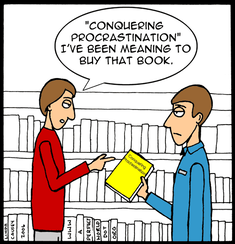 In 1742, poet Edward Young said “Procrastination is the thief of time”. Mind you, he didn’t actually get around to saying it out loud until 1743. No, that’s just my little joke. He said it in the poem “Night Thoughts on Life, Death and Immortality”. I’m not sure if authors are the worst when it comes to procrastination, but if the Selfishgenie Twitter feed is anything to go by, it certainly seems to be that way. In fact, research suggests that 95% of people procrastinate to some degree. It’s just more of a problem for some people than it is for others. Procrastination is not the same as laziness. Many procrastinators are actually highly productive; it’s just that what they produce isn’t necessarily what is important.  For example, my own favoured form of procrastination is writing blogs. Especially when I should be editing. Either that or writing wonderfully crafted letters to the media about something of great importance in the world. Some of them have even been published - but compared to what I should be doing, they aren't important. At the extreme end of the scale ADHD, OCD, anxiety and depression are all associated with procrastination. So, you could actually be harming your mental health by not doing what you know you should be doing. Procrastination definitely causes feelings of tension and stress, which are both triggers for anxiety and depression. Social media is one of the places where you will find a lot of people procrastinating. It is the ideal place for them to go. They may genuinely mean it when they say “I’ll just take a quick look, just to see what’s trending.” Then, 3 hours later, they’re still there and haven’t done a single bit of work, whatever their work may be.  There are many reasons why people procrastinate. Some believe that they work better if they are up against a deadline. Back in the old days, when I used to manage a team, I could always tell when someone produced their work right at the last minute. For a start, it was usually substandard because it hadn’t been given enough time for research, colleague input, proof reading, editing or re-writes. Or maybe I was just able to recognise the hunted look in my team member’s eyes when they saw me approaching, knowing that at any moment I might ask to see the work I’d asked them to produce a week before and was due on my desk in under an hour and they hadn’t even started it. Other people procrastinate because they think that whatever needs to be done will be challenging in some way and they want to put the task off in the hope that it will go away (it rarely does). That’s not good for an author. If you have an idea for a story, but you are putting off writing it, then you have to ask yourself if you are really cut out to be an author. If you aren’t contracted to produce a book by a certain date, then the only person who is going to suffer from any delay is you. You are bound to feel frustrated if you haven’t even made a start on it. 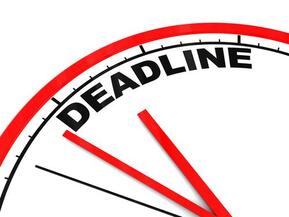 And if you are working to a contractually binding deadline, then re-read my observation above about work being substandard if it’s left to the last minute. I know plenty of authors who procrastinate not because they don’t want to write the story, but because they are worried that when they have finished and they try to find an agent or a publisher, no one will be interested. Or if they self-publish, no one will want to read their book. This fear puts them off finishing their work, because they don’t want to have to face that judgement. So, instead, they will re-write the same chapter (or paragraph or even sentence) time after time, telling themselves they’re trying to find perfection. But all they are really doing is putting off finishing their book. 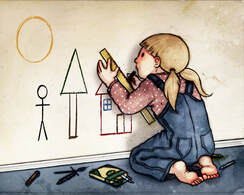 Procrastination and perfectionism go hand in hand. Procrastination and perfectionism go hand in hand. Procrastination and perfectionism are well known to go hand in hand. The question is, does the desire for perfection lead to procrastination, or does the desire to procrastinate lead to perfectionism? What we don’t admit is that there is no such thing as ‘perfect’, but there is plenty of ‘good enough’. This is essentially fear of the unknown. The author doesn’t know how good their work is and is afraid it might not be good enough. A pessimist is more likely to procrastinate than an optimist under those circumstances. Journalist James Surowiecki said that many procrastinators are ‘self handicappers’. Rather than risk failure, they create conditions that make success impossible. I think most procrastinating authors can relate to that. Other people procrastinate because they are worried that when they have finished whatever they are doing, they won’t have anything to move onto, which will leave their lives feeling empty.  Essentially there are three types of procrastinator: those that do nothing (or hang around on social media, which amounts to the same thing), those who do something less important than what they should be doing, or those who do something that they consider to be more important. Surprisingly, getting unimportant things done and getting more important things done are both regarded as being ‘good’ forms of procrastination. By getting the unimportant stuff out of the way, we actually create time to do the more important task, without having to step away from it later to return to the mundane tasks. For example, you want to spend three hours writing, but instead you find yourself doing the laundry, preparing dinner and walking the dog. But that’s great because when you start writing, you won’t have to stop and do those things later and you can focus for three hours non-stop. Doing more important stuff, rather than sitting down and doing the thing you want to, eg writing, also works. So when you do sit down for a couple of hours to write you (a) haven’t anything more important to do that is nagging at you and (b) you can feel virtuous for getting the important stuff out of the way first. "But there are some things you can do to defeat procrastination." But is there an actual ‘cure’ for procrastination? The first thing to do is identify why you are procrastinating. I have suggested a few reasons already, but there are probably more. Only you can know why you are either delaying starting things or delaying finishing them (both are forms of procrastination). Once you have answered the “why” question, you can then start to address the issues, such as lack of confidence in your own ability. But there are some things you can do to defeat procrastination. Commit to the task. Focus on doing, not delaying. It may be helpful to set yourself a deadline for completing something. Perhaps saying “I will write 1,000 words by 4 pm.” Promise yourself a reward for completing what you set out to do. It doesn’t have to be something big, just a 10 minute break for a cup of coffee, or maybe a slice of cake with the coffee you were going to have anyway. Or perhaps 10 minutes catching-up on social media (but make sure it is just 10 minutes).  Minimise distractions Minimise distractions Re-phrase your wording. Don’t say “I need to” or “I have to”, say “I want to” or “I choose to” instead. It is far more likely that we will do the things we want to do than the things we feel we have to do. Minimise distractions. I know, more easily said than done, especially if you have family buzzing around in the background or demanding work colleagues. But there are things you can do. Log-off all social media, so it isn’t pinging away in the background, tempting you into paying it attention. Close down your emails, unplug/switch off the phone, close the door. And if you can’t escape from the family, then work at a time when the family aren’t going to be so much of a problem. For example, if you have a young child, work when the child is napping. Work when older children are at school or organise play dates for them, so they aren’t calling on your time. And tell your partner to make their own damn coffee. If a colleague is demanding attention, agree a set time to meet, when it’s convenient for you (if procrastination is the thief of time, demanding work colleagues are master criminals). If the task is a really big one, break it down into much smaller chunks. Don’t set out to write a book. Set out to write a paragraph – or even a sentence. When you have completed that, write the next paragraph and so on. John F Kennedy may have set a goal of putting a man on the Moon, but NASA actually achieved that goal by solving one small problem at a time. 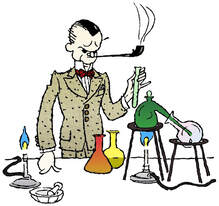 Coffee based procrastination Coffee based procrastination As mentioned above, get the routine chores out of the way first – and quickly. You can then concentrate on what you want to do without feeling any guilt. Don’t turn small things into big ones. A cup of coffee really is just a cup of coffee. It doesn’t have to be made with hand ground beans which you have to slow roast first. Yes, we know those people. We may even be those people. If you want a slice of cake you don’t have to bake it, you can just buy it. You know you are procrastinating when you actually start looking for those sorts of time-wasting activities. But it all starts with knowing that you are procrastinating in the first place. If you don’t realise you are doing it, you can never hope to stop doing it. If you have enjoyed this blog, or found it informative, be sure not to miss future editions by subscribing to our newsletter. Just click on the button below - and you can also get a FREE eBook for subscribing. But don't procrastinate - do it now. |
AuthorThis blog is compiled and curated by the Selfishgenie publishing team. Archives
March 2025
|

 RSS Feed
RSS Feed